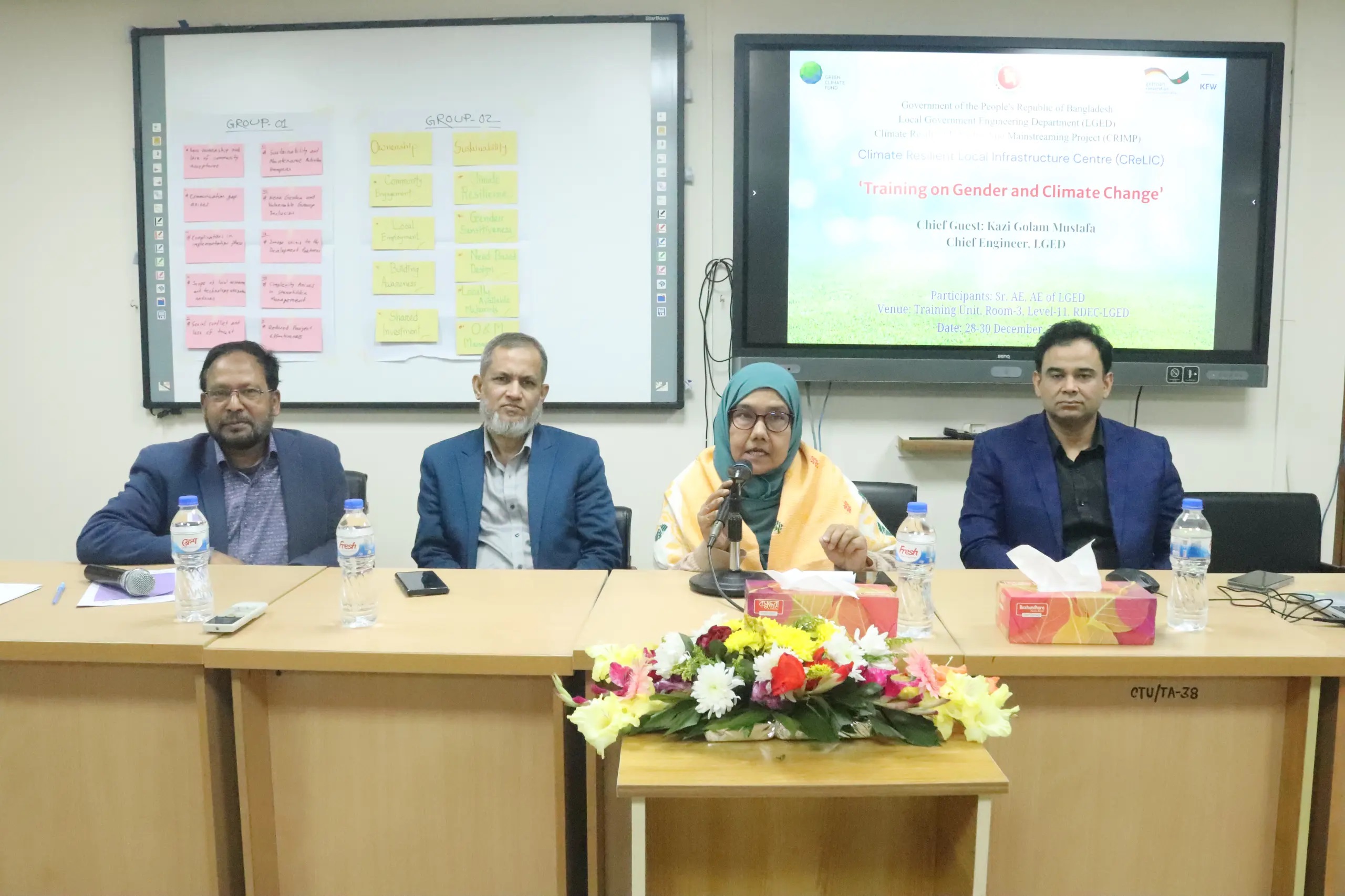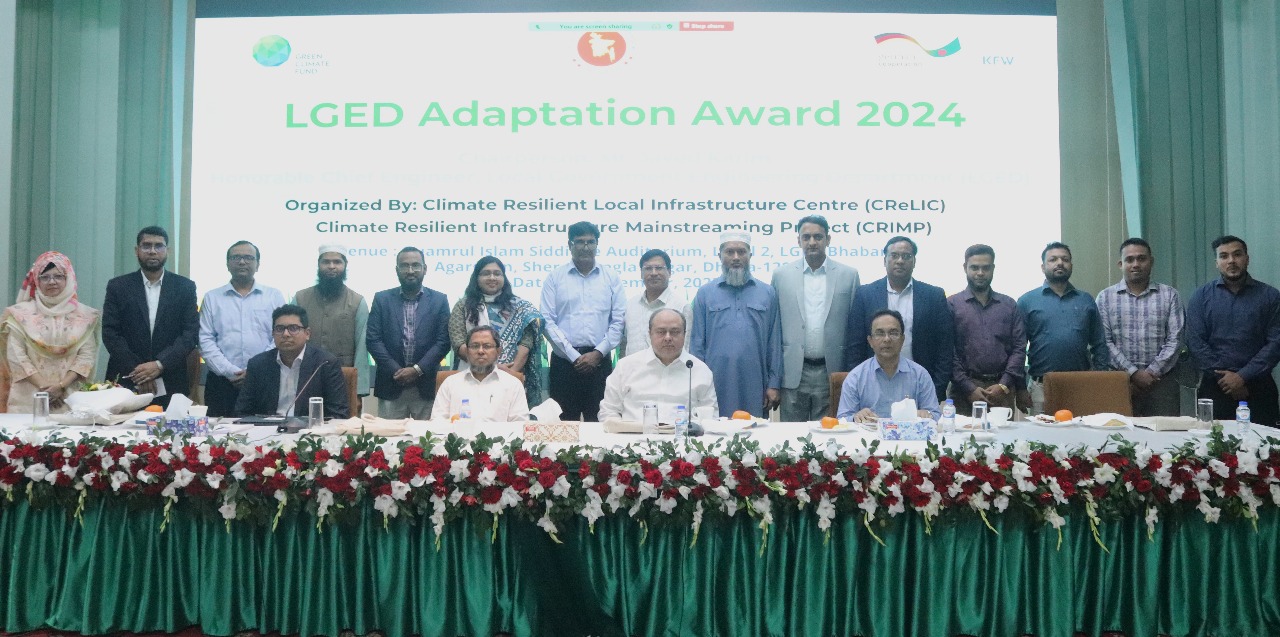- +880 1313 419002
- director.crelic@lged.gov.bd
-
Level-11, LGED HQ, Dhaka-1207, Bangladesh

Climate Resilient Local Infrastructure Centre
The Local Government Engineering Department (LGED) is establishing a Climate Resilient Local Infrastructure Centre (CReLIC) under its Climate Resilient Infrastructure Mainstreaming (CRIM) Project funded by the Green Climate Fund (GCF), the Government of Germany through the German Development Bank (KfW) and the Government of Bangladesh (GoB) to mainstream climate resilience in the design, planning, and implementation of local infrastructures.
During the project period, CReLIC will work as a distinctive entity within LGED financed from the CRIM Project. Subsequently, CReLIC will be institutionalized to ensure the mainstreaming of climate change adaptation and mitigation options in the infrastructure development activities of LGED and other organizations.
CReLIC will trigger a stepwise institutional learning process fully integrated into LGED structures and backed by pilot investment schemes under components 2 and 3 of the CRIM Project, i.e., climate-resilient infrastructure development in rural and urban areas, respectively. As a result, the CRIM Project aims to increase directly the adaptive capacity of more than 134,000 people to
climate change. Indirectly, 10.4 million people (6.8 percent of the total population of the country) will benefit from climate-resilient infrastructure planning and implementation in the long term.
The National Adaptation Plan (NAP) of Bangladesh
(2023-2050) formally designates CReLIC as an Supporting
Implementing Entity for Intervention CDR 1: Transformative
capacity development and knowledge management for
integrating climate change adaptation in planning processes.
This strategic positioning establishes CReLIC's critical
mandate to advance national adaptation agendas and
mainstream climate resilience considerations into
comprehensive development planning frameworks.

CReLIC Management Team


Our News and Events
 30-Dec-2025
30-Dec-2025
Three-Day Training on Gender and Climate Change Organized by LGED’s CReLIC Concludes
A three-day training program titled "Gender and ...
Read More
















